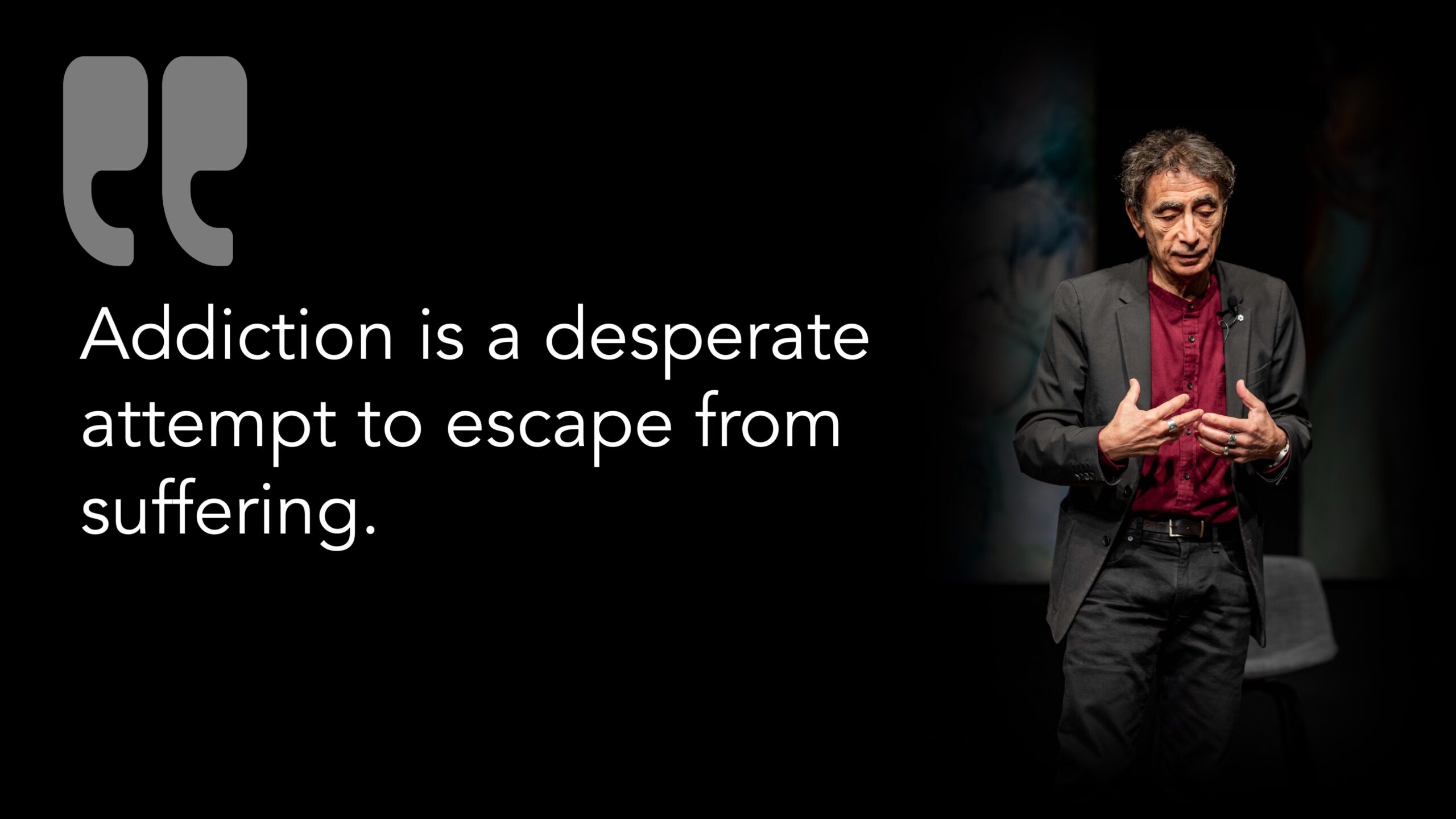A New Perspective on Addiction
Gaboru2019s research and his experience as a doctor has shown him that addiction is not a brain disease.u00a0 It is not genetic, though we may have genetic traits that increase our risk for addiction. It isnu2019t a choice (thatu2019s the one that so many people have difficulty understanding.)u00a0
So, what is it? Gabor sees addiction as complex set of behaviors and experiences. It gives us pleasure, relief, and cravings in the short term. In the long term, itu2019s something we canu2019t or arenu2019t ready to give up, in spite of the bad things that happen to us as a result of our behavior. But thatu2019s just a definition. To better understand it, we have to look at why weu2019re seeking the pleasure or relief.u00a0 And that ties back into shame. Itu2019s a loop that feeds into itself.
What I mean by that is, the drug or behavior weu2019re using is something that gets us out of pain. Maybe the pain is boredom, or depression, or anxiety. Or a feeling that we arenu2019t loveable. Or a belief that no one will like us if they see u201cwho we really are.u201d Or the pain of not being comfortable at a party with friends. Or perhaps the drug simply gives us joy and pleasure that weu2019re lacking.
All of those are reasonable things that just about everyone wants.u00a0 But for those of us with addictions, our brains didnu2019t develop for us to be able to experience those things the way u201cnormiesu201d do, in large part because of the experiences weu2019ve had in our families of origin.
(And, just as a reminder, this isnu2019t anyoneu2019s fault; as parents, we give our children the best we can, but our ability to do that is limited by our own wounds. And many of us, parents or children, arenu2019t really aware of the wounds we carry until we take the time to look for them.)u00a0
Someone who is addicted simply has a brain thatu2019s wired differently, because it didnu2019t get the stimulation that cultivated healthy brain function. And for us, the first time we used alcohol, or a drug of abuseu2026 it probably felt wonderful. It made us able to feel all the things that everyone else can feel all the time. When you think about it, who would want to turn that down? Who would want to stop doing that? Who wouldnu2019t want to do that compulsively?
Hopefully this is beginning to make a little more sense now.u00a0 Those of us struggling with addiction, the things we use that make us feel good started out by making our brains feel things weu2019ve always wanted to be able to feel, but maybe we didnu2019t know it was possible. Because our brains didnu2019t develop with the brain chemical u201cfactoriesu201d and u201chighwaysu201d (as we talked about in the last chapter).u00a0 And thatu2019s why itu2019s not a disease, and not a choice.
The genetics is more complicated to explain, but in brief, no gene has been found that is conclusively linked to addiction, and even if there were one, it would not explain the huge increase in addiction. Our brains simply donu2019t evolve that sort of change over a decade or two.u00a0
There are genes that, if present, make us more sensitive. People with high sensitivity are more likely to want to use something to numb those feelings. But that isnu2019t a cause of addiction; itu2019s, again, a pain, a discomfort that the behavior seeks to get away from.

